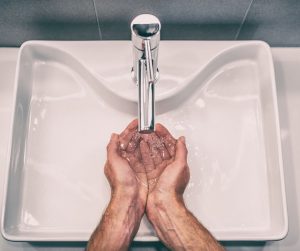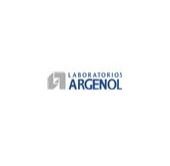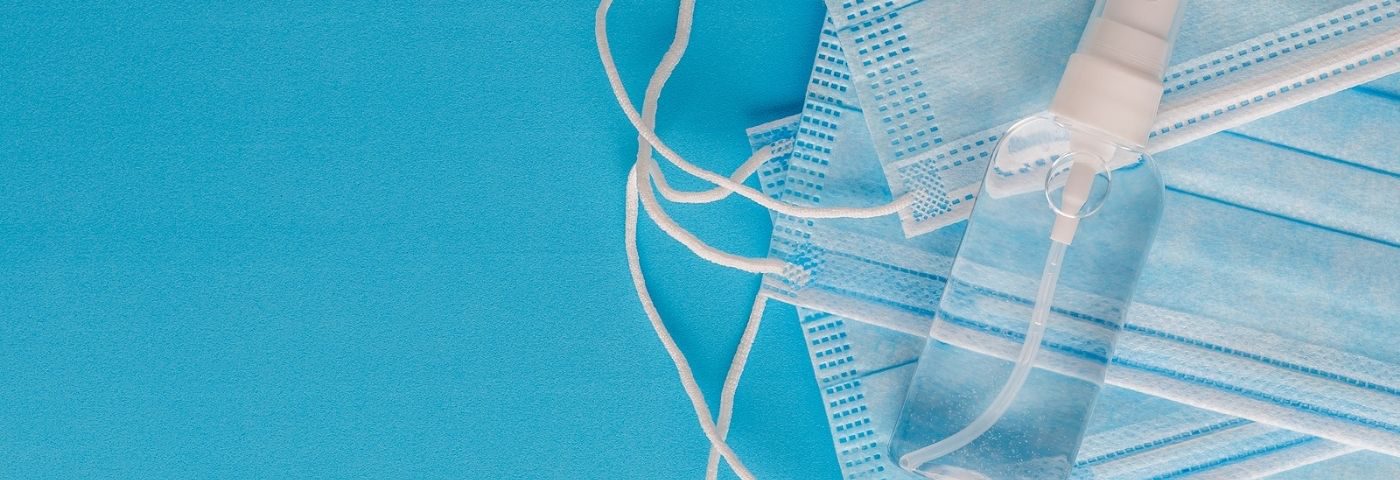The hike in hygiene
As the coronavirus pandemic hit nations across the world, hygiene guidelines put a new emphasis on the use of sanitisers and soaps to prevent further spread of the virus. Ever since, existing hygiene behaviours and attitudes have been put under the microscope, giving rise to a new germophobic consumer.
A survey of 2,000 UK adults found that two in three (67%) consumers are now more afraid of germs and conscious of hygiene than before the coronavirus pandemic began. Covid-19 has fast-tracked several macro trends, but perhaps none more so than personal cleanliness. As such, the importance of hygiene, particularly hand hygiene, has already been coined as one of the biggest trends of 2021.
While the world was in lockdown, the conversation went online. Before the pandemic, social media conversations around hygiene hovered around 200k posts in the US and UK. As the pandemic took its grip this more than doubled, with 424k conversations about hygiene in the countries between January and June 2020.
This increased discourse accelerated a behavioural change. A recent survey by Cosmetics Business found that 92.8% of consumers want more hygienic personal care products as Covid-19 has changed their attitudes and shopping behaviour. Another report found that 47% of US consumers expect to spend more on personal hygiene products, such as hand sanitiser and soap, going forward – a direct result of the pandemic.
Although it has been an incredibly tough year for many, with a market boom there are always winners. In early 2020, chemical and cosmetics company Kao announced that although it saw a drop in sales for its cosmetics business, demand for its hygiene products resulted in an increase in net sales and operating income for Q1. Proctor & Gamble also reported an 8% year-on-year rise in net sales thanks to an elevated demand for cleaning and hygiene products. Although consumption of hygiene products is likely to slow, widespread research and opinion suggests a dramatic shift in behaviours will lead to a new definition of beauty and hygiene which represents the new normal.
Hand hygiene habits

Handwashing and sanitising have always been universally recognised as an important hygiene habit, but with the global pandemic, there has undoubtedly been a spike in awareness following advice from health experts and government officials. According to one survey, only 11% of consumers washed their hands for the recommended time of 18-20 seconds before coronavirus, increasing to 25% during the pandemic. Euromonitor International’s 2020 Beauty Survey also reported that nearly all consumers (93%) wash their hands at least twice a day and over half of them do so five or more times.
With the convenience of being on the go and not requiring water, hand sanitising products such as gels, foams and sprays have become popular as a method of disinfecting hands. According to Euromonitor, over 60% of consumers report using a sanitising product at least twice a day.
As Covid-19 rapidly spread, the demand for hand sanitisers and hygiene products in both medical and personal settings skyrocketed. Despite the added challenge of sourcing raw materials and ensuring social distancing amongst staff, the beauty and personal care industry stepped up immediately. Manufacturers, suppliers, and brands pivoted operations overnight to help in the fight against the spread.
In March 2020 – just 72 hours after the French government issued a call to industry to help fill the gaps of key medical supplies – luxury goods company LVMH converted three of its perfume manufacturing facilities to make 12 tons of a hydroalcoholic gel formula for French hospitals.
The Californian company EO Products announced it was quadrupling its production of hand sanitiser, while health and hygiene company GOJO more than doubled its production to meet the new demand.
“We believe the world will forever be changed by this pandemic, and we see this translating to a sustained increase in awareness of the importance of safe and effective hygiene practices,”
Carey Jaros, GOJO President and CEO
The pandemic also brought about innovation with the launch of new indie brands, as well as products. Hygiene Hero launched with just two products: a spray-on hand sanitiser and a non-woven fabric face covering. UK supplier Stephenson also launched a new soap base which formulators can enhance with fragrances or thickeners.
According to the company’s website, Liquid Soap 2020 was launched to aid the fight against the current coronavirus crisis and “has been specifically formulated to be an all-purpose soap, suitable for both personal care, such as hand washing, and for multi-purpose cleansing products for hard surfaces and floors”. Reiterating the thoughts of experts within the industry, the company believes “hygiene wellness is going to be a way of life in the foreseeable future”, stating that its goal is to make the new normal healthy and beautiful.
At home and on-the-go
Research has shown that hand sanitisers are the most used hygiene product when consumers are outside. The same study also found that even if consumers regularly wash their hands, they also use hand sanitisers when at home, demonstrating how the use of these products has become fully integrated into consumer’s hygiene regimes.
Further to this, analysing the sentiment from social media showed that there are big opportunities for beauty and personal care brands to address issues with sanitisers including fragrance, stickiness, presence of alcohol and harmfulness, whilst preserving the core promise of effective disinfection.
From hygiene to handcare

Alongside this spike in hand hygiene, there has been an increased focus on the need for hand care products. Many consumers are concerned that excessive handwashing and the use of hydroalcoholic solutions can lead to dryness and irritation, as well as exacerbating skin conditions such as eczema and psoriasis.
For this reason, consumers across the globe have altered their skin and body care regimes causing a global spike in the sale of hand care products, particularly creams that alleviate some of the negative side effects of over washing. Euromonitor’s annual Beauty Survey found that 44% of consumers used a hand care product at least once per day in 2020.
Antibacterial personal care on the rise
According to a recent report by MBS Intelligence, this trend towards hygiene and health will not decrease once the pandemic subsides. Instead, it suggests the virus has given way to a whole new product category: antibacterial beauty. In this subcategory, we are witnessing the development of new hybrid products that deliver their primary function whilst also offering antibacterial properties.
For example, due to overwhelming consumer demand for protection, Unilever added a new range of germ-killing products to its Vaseline range. This includes the Dry Hands Rescue 2 in 1 Hand Cream with anti-bacterial properties which promises to replenish the moisture lost from using soap and hand sanitiser, while helping to protect dry and cracked skin. Elsewhere, independent cosmetic brand, The Chemist Look launched a special edition “quarantine hand cream” using formulas specifically designed to strengthen and care for the skin on the hands.
Beauty subscription service GLOSSYBOX predicts that demand for normal hygiene products to become more luxurious will be a major new beauty trend in 2021. The company believes consumers will look for “hand washes and sanitisers that are gentler on the skin, facial moisturisers that are highly effective but don’t smell clinical and luxury toothpaste in ‘fun’ flavours such as jasmine or ginger”.
Reflecting this, one study found that Chinese consumers are looking for moisturisers that can lessen irritations, with a notable preference for products made from immunity-boosting, safe and organic ingredients.
Finally, we are seeing the beauty industry react to the challenges of increased hygiene that are taking its toll on consumers’ health and wellbeing. MedZone’s Face Balm for Masks claims to prevent “maskne” – acne due to continued mask-wearing – and reduce chafing and chapped skin by creating a friction barrier between the mask and skin.
The case for oral hygiene

In late 2020, industry stalwarts turned their efforts to researching the role of oral hygiene in slowing the spread of Covid-19.
Colgate-Palmolive released details of a clinical research programme that investigates the effects of toothpaste containing zinc or stannous, and mouthwashes containing cetyl pyridinium chloride (CPC) on the virus. Dr David Alland, Lead Researcher of the Colgate-Rutgers study and Director of the Center for Covid-19 Response and Pandemic Preparedness, said that it is “likely that SARS-CoV-2 virus origination in the mouth contributes to disease transmission, especially in persons with asymptomatic Covid-19, who are not coughing. This suggests that reducing virus in the mouth could help prevent transmission during the time that oral care products are active.” Indeed, the study’s early findings suggested that its Total and Meridol toothpaste neutralized 99.9% of the virus after two minutes of contact.
Similarly, in November 2020, Unilever announced that its preliminary research into the use of cetyl pyridinium chloride mouthwash found it could play an important role in preventing the transmission of Covid-19. In an interview with Cosmetics Design Europe, Glyn Roberts PhD, Head of Oral Care Research and Development at Unilever, and joint author of the study said: “While we are clear that this is not a cure or proven way to prevent the transmission, the results are very promising and given the critical stage of the pandemic, we feel it is important to share them so that people are aware of the potential benefits of CPC containing mouthwashes alongside other preventative measures.”
The future of hygiene
So where does this leave the beauty industry at the beginning of a new year?
Going forward, beauty “will be less about achieving a desired aesthetic and more about maintaining health… health and hygiene will be a major consumer driver post-coronavirus” according to trend forecaster Clare Varga, Head of WGSN Beauty.
Indeed, initial studies have shown that once the pandemic has subsided, we can expect to see a hybrid of pre- and post-pandemic consumer behaviours. “While some of the more extreme limitations on everyday life seen in 2020 may be rare occurrences going forward, there is no doubt that many aspects of consumer behaviour have shifted for the long-term. A need for personal cleanliness, in particular, hand washing, and sanitising will continue to drive demand for hygiene-related grooming products,” comments Lisa Holmes, Global Head of Surveys at Euromonitor International.
While the volume of online conversations regarding hygiene decreased after the initial lockdown periods in 2020, the topic of hygiene has remained higher on the agenda than before the pandemic. This steady dialogue certainly indicates the likelihood of a long-lasting shift in consumer attitudes.
As such, hygiene presents a big opportunity for the beauty and personal care market. A study of more than 80 CEOs, Chairs, Executive Directors, and investors from across the beauty sector found that the position of ‘Hygiene Director’ exists in several businesses, demonstrating the importance of this sector. McKinsey has estimated that global revenue for the beauty industry could fall by up to 30% post-pandemic, but if beauty suppliers, manufacturers and brands can continue to pivot and tap into this booming trend, they might just be on the up.
Hygiene products at in-cosmetics Global
Attendees to in-cosmetics Global 2021 will be able to source ingredients for hygiene products from a host of exhibitors including:

Laboratorios ARGENOL which produces and markets SILVER-based products, whose antimicrobial properties are widely used in the cosmetic, medical devices and pharmaceutical industry including in sanitisers, wet wipes, skincare and intimate hygiene.


Bio-Gate AG – one of the world’s leading providers of innovative technologies (> 85 patents) and customized solutions for health and hygiene – which aims to make living together safer and healthier and to improve the well-being of all individuals.

NEFTIS LABORATORIOS SL, a Barcelona based OEM (Contract Manufacturer) company for cosmetics with any type of formulations, medical device products from Class 1 (chemical peels) to Sterile Class 3 (sterile injectable) as well as dietetic, hygiene and aesthetic products.
Find out more about the effects of the pandemic on the cosmetics industry.

